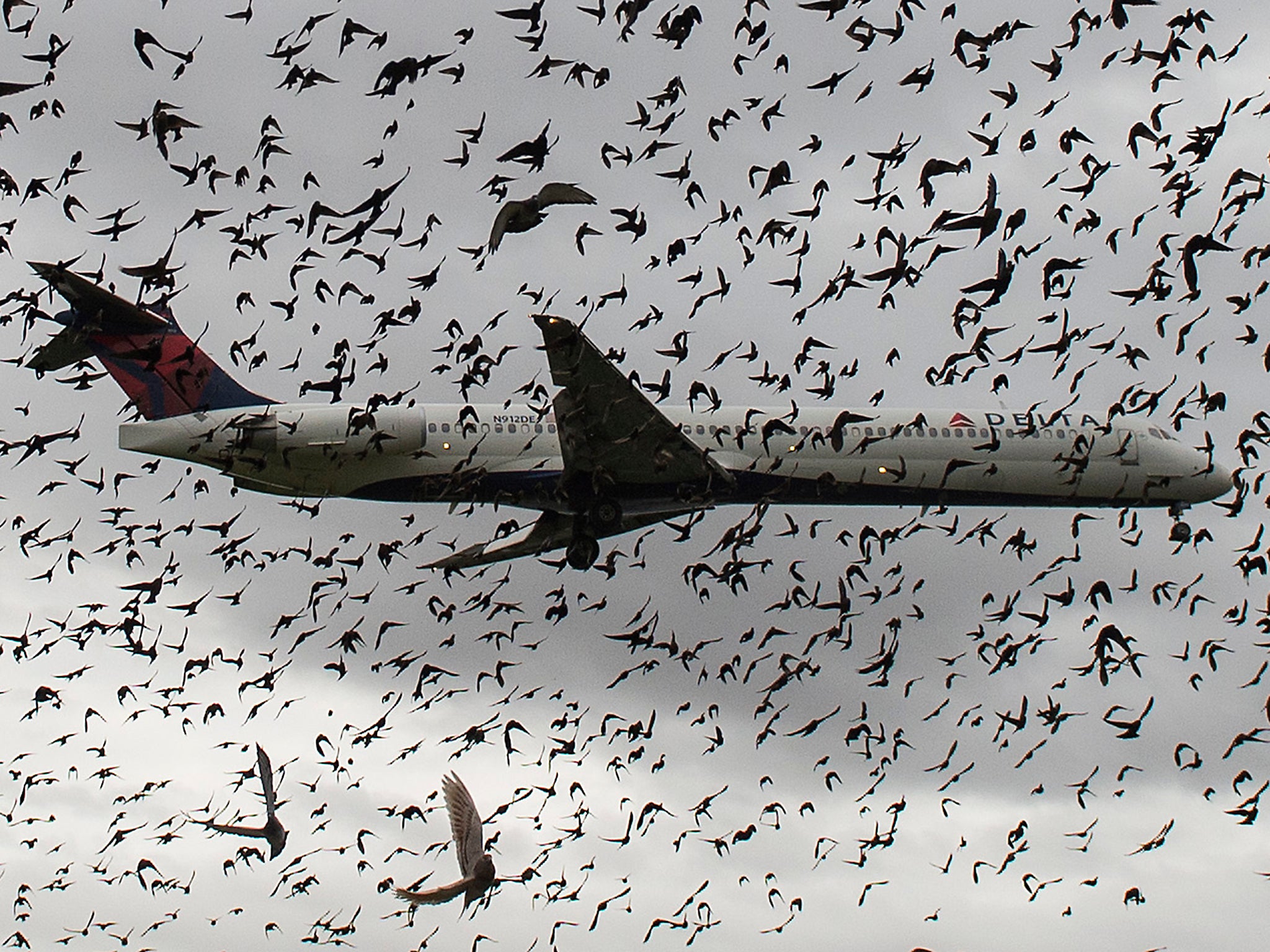Airlines can dodge flight-delay compensation after bird strikes, European Court of Justice rules
Court decides a bird strike is an 'extraordinary circumstance', and spells out compensation conditions when delay has more than one cause

Thousands of passengers who had anticipated payouts of up to €600 (£510) for flight delays caused by bird strikes have been told they have no right to compensation.
The latest flight-delay verdict from the European Court of Justice (ECJ) has ruled that "a collision between an aircraft and a bird is an extraordinary circumstance". Therefore airlines can reject claims for compensation from passengers delayed by three hours or more by a bird strike.
The case involved two Czech passengers, Marcela Peskova and Jirí Peska, who claimed €400 each from Travel Service AS, which runs Smartwings. Their flight from Bourgas in Bulgaria to Ostrava in the Czech Republic was delayed by over five hours by a bird strike.
Airlines have long argued that events such as bird strikes are beyond their control. In previous judgments, the test applied by the court has been “inherency”: whether or not the problem is inherent to airline operations.
But the judges in Luxembourg concluded: "The air carrier cannot be obliged to take measures which would require it to make intolerable sacrifices.
"Although the air carrier may be required to take certain preventative measures in order to reduce or even prevent the risks of any collisions with birds, it is not responsible for the failure of other entities (such as, inter alia, airport managers or the competent air traffic controllers) to fulfil their obligations."
Airlines for Europe, which represents carriers flying two-thirds of European passengers, welcomed the verdict. Aage Dünhaupt, head of communications, said: "It's a positive decision. There are certain things we cannot control. The first line of defence for bird strikes is the airport managers and air-traffic controllers taking preventative action."
He called for "a more precise set of rules for the future", saying: "No other sector has this degree of regulation.”
The Flight Delay Team at Bott & Co, a firm of solicitors based in Wilmslow, Cheshire, had 2,500 compensation cases “stayed” awaiting the decision, with potential payouts estimated at €1m. Had the decision gone in favour of the passengers, tens of thousands of other travellers could have made retrospective claims for delays.
Kevin Clarke, flight delay legal expert at Bott & Com said: “This is not the decision we were hoping for, but nonetheless it is clarity from the highest court in Europe who have found that bird strikes are an extraordinary circumstance.
“We are particularly disappointed because we have a track record of winning bird strike cases in the UK, even to appeal level. We’ll be taking a long look at this judgment in the coming days to work out the best course of action for our clients and all UK passengers.”
The judgment also clarified the rules as to when a delay has more than one cause, one of which is classed as an "extraordinary circumstance". To decide whether an incident qualifies under the three-hour rule, the lateness caused specifically by the extraordinary circumstance must be subtracted from the total delay.
When Europe’s passengers rights’ legislation, known as EC261, took effect a decade ago, it stipulated compensation only for cancellations and denied-boarding cases. But the ECJ ruled that a delay of three hours or more amounted to a cancellation, and therefore triggered payouts of €250, €400 or €600, depending on the length of the flight.
Recent court decisions have extended the range of issues for which airlines must pay out. The “extraordinary circumstances” defence now excludes incidents in which a plane is damaged by ground equipment. or a flight returns to the airport of departure – as a British Airways jet did last week after a pressurisation issue on a Heathrow-Delhi flight.
The airlines argue that being forced to pay many times the original air fare in compensation for modest delays pushes up prices for other passengers.
The European Commission is seeking to reform the regulations, but the process is being delayed by a row between Britain and Spain over Gibraltar airport.
Join our commenting forum
Join thought-provoking conversations, follow other Independent readers and see their replies
Comments
Bookmark popover
Removed from bookmarks